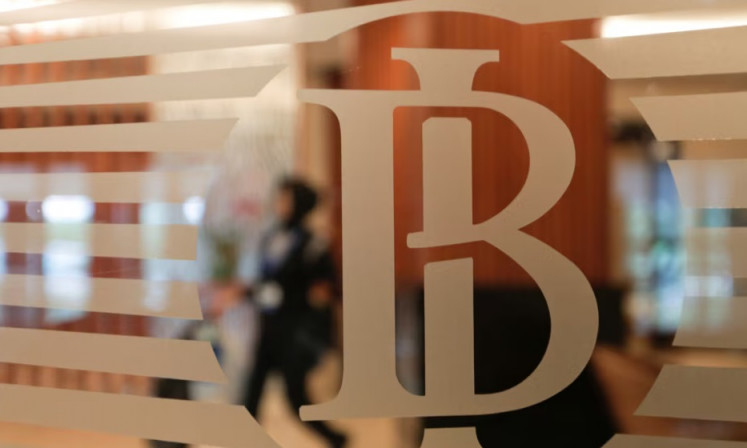Popular Reads
Top Results
Can't find what you're looking for?
View all search resultsPopular Reads
Top Results
Can't find what you're looking for?
View all search resultsJokowi humanizes Papua
President Joko âJokowiâ Widodo made a breakthrough when he allowed foreign journalists to freely enter Papua
Change text size
Gift Premium Articles
to Anyone
P
resident Joko 'Jokowi' Widodo made a breakthrough when he allowed foreign journalists to freely enter Papua. With this announcement being declared on World Press Freedom Day, many considered it the victory of press freedom over a security approach, which had long been in place in Papua. This is intelligible considering the recent jailing and subsequent release of two French journalists in Papua.
Yet Jokowi's announcement is not merely a matter of press freedom. Rather, it should be viewed as his humanitarian approach to Papua. Opting for openness proves he is friendly toward democracy.
Global criticism of real conditions in Papua will enrich perspectives and create ways out for the interests of local residents. Providing more opportunities for international reporters to explore Papua will bode well for Jokowi overseas compared to the leaders of powerful countries known for their affirmative and unjust policies.
In the short term, the President's bold decision could face sharp domestic criticism since it shows Jokowi's lack of political strength in the face of worldwide pressure. However, in a long run, Jokowi will have a more durable legitimacy following global recognition of his approach to Papua. The President's recent visit to Papua and West Papua could be testimony to his enthusiasm for Papua.
With foreign journalists given more room to enter Papua, they may serve as objective spokespersons of Papua's transformation. Jokowi will later on be perceived as promoting universal humanism as opposed to propaganda when it comes to moving toward Papuans.
Many relate his intrepid policy to his skilled international observations. Seen from his prior notions of international issues ' calling for Asian-African countries not to rely on international monetary institutions, ordering foreign vessels involved in illegal fishing in Indonesian waters to be seized then blown up, and refusing to grant clemency to foreign drug convicts ' Jokowi is trying to set an alternative international trend.
Looking at Papua, underpinned by his concern about the international mind-set, Jokowi applies so-called historical deconstruction. This emphasizes Jokowi's gradual efforts to shift the perspective of Papua from the source of exploitation, be it state or private, to the target of empowerment.
Rather than solely pouring money into local governments, Jokowi comes up with real infrastructure developments with direct benefits for the people. The deep-rooted perception that Papua is to do with natural resources per se must be dismantled in favor of a empowerment-based approach. Infrastructure developments such as the Trans Papua highway are expected to secure more domino effects on poverty reduction.
Jokowi's empowerment approach to Papua looks to stem from his understanding that no single country can escape the poverty trap and be a new power by relying on international financial aid alone.
Spellbound by the success stories of newly industrialized countries, mostly in eastern Asia, Jokowi has faith in self-reliance and confidence as the key to escaping inequality, destitution and injustice. Jokowi disposes of a philanthropy styled development, as was the last government's policy toward Papua.
In the context of international cooperation, the involvement of foreign journalists witnessing Papua's transformation serves to retain a civil liberty over a security approach. Not only does this contribute to Jokowi's profile abroad, but foreign journalists might also reduce mounting international pressure on Indonesia for a Papua referendum.
Foreign journalists being free to arrive and work in Papua is more than enough to prove that security is no longer an issue in the country's easternmost province. By opening Papua, Jokowi is proclaiming to the international community that he is confident there is nothing to hide there.
Allowing foreign media in is the right move to weaken the push for independence in the region. Pictures of brutality of Papuans that appear daily in social media outlets are expected to decrease, along with the journalists' candid reports of Jakarta's humanitarian approach to Papuans.
Change for the better not only requires cooperation between the people of one nation. What matters equally is teaming up with outsiders of the same vision. Both are tied to wisdom.
_______________
The writer is a lecturer in the school of cultural sciences at Andalas University, Padang.










